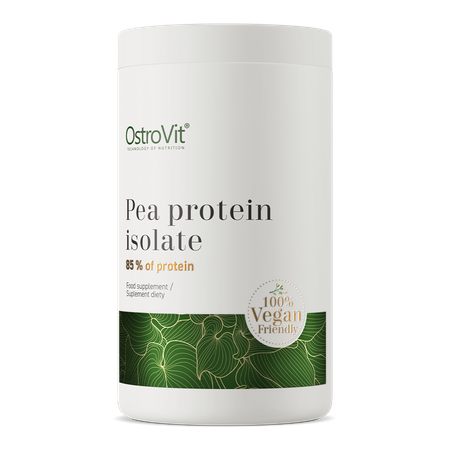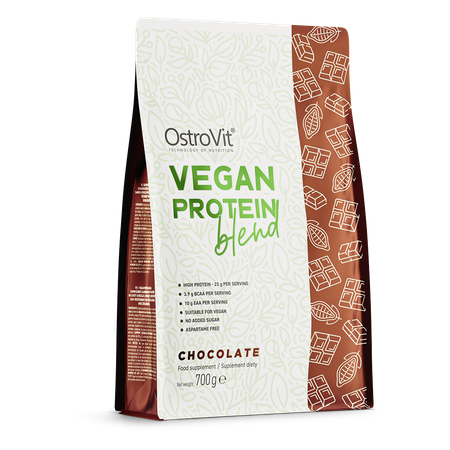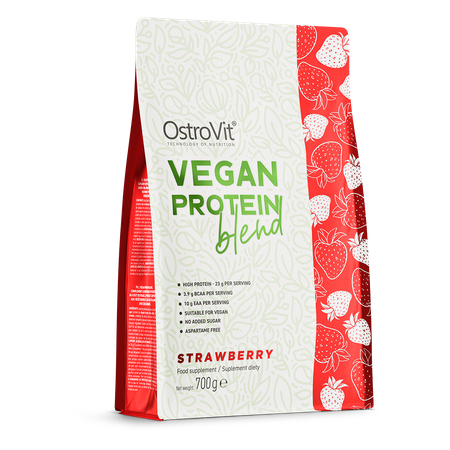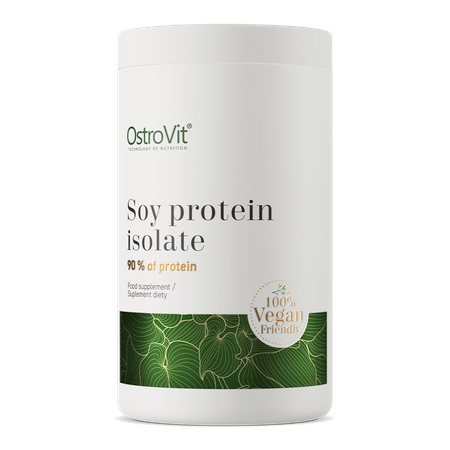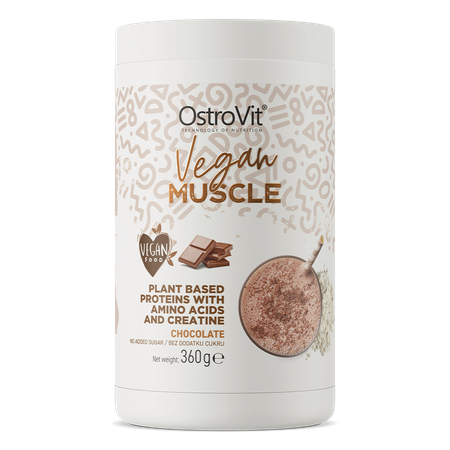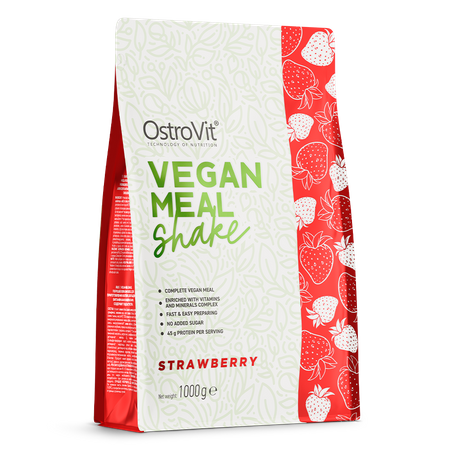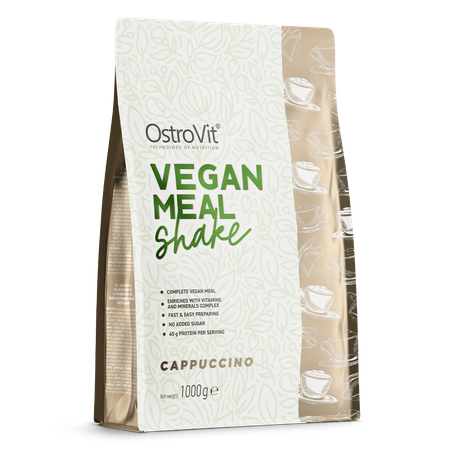Plant-based protein
Vegetable protein is a nutrient that is supplied to the body along with products of plant origin. It is an alternative to whey protein, ideal for supporters of vegetarian and vegan diets.
Vegetable protein, just like protein of animal origin, is made of amino acids and plays an important role in the body.
Protein functions
Protein is a key building block of the body. It also performs many important functions in the system.
- It is the main component of hormones and enzymes,
- is part of the immune body,
- enables cellular respiration,
- maintains the proper pH of body fluids,
- is a carrier of certain vitamins and minerals,
- it also has a building and energy function.
Protein protein unequal?
As you surely know, proteins can be divided by origin into animal and vegetable. This macronutrient can also be distinguished due to the content of exogenous amino acids into wholesome and incomplite.
In the group of proteins, the term reference protein and limiting amino acid should also be distinguished.
There are many concepts, but take it easy ... all these elements together form a coherent whole!
Animal protein and vegetable protein
Animal proteins are distinguished by high nutritional value. It contains all exogenous amino acids, i.e. those that the body cannot produce on its own, in the right proportions and quantities. They are characterized by high digestibility, and of course, its source are animal products such as meat, milk, cheese, yogurt and other dairy products.
On the other hand, vegetable protein has a lower biological value than animal protein. Plant products rarely contain a full set of exogenous amino acids, which makes them considered less valuable. Also, their digestibility is slightly worse than those of animals. Their sources are products such as dry legume seeds, cereals, seeds and peanuts.
Wholesome and incomplete protein
Incomplete proteins are proteins of plant origin that contain little or no exogenous amino acids. In turn, wholesome ones include proteins of animal origin that have all the necessary amino acids, i.e. those that the body cannot synthesize on its own.
Reference protein
Chicken egg white is considered to be the reference protein, because it contains all the essential amino acids in optimal proportions, which is ideal for the human body.
Limiting amino acid
It is also an important concept from the point of view of plant proteins. A limiting amino acid is an essential amino acid that is too small in a given product in relation to other exogenous amino acids. Thus, it limits the use of other amino acids.
Complementarity of amino acids
Vegetable protein is a constant element of a properly balanced diet. If there are also sources of animal protein in the menu, you do not have to worry about supplying the body with all exogenous amino acids.
However, if you follow a vegetarian or vegan diet, you need to pay special attention to the proper combination of plant-based products to provide the body with all the essential elements. Amino acids then complement each other, preventing the occurrence of deficiencies.
For example, among vegetables and cereal products, the limiting amino acids are lysine and tryptophan, while dry seeds of legumes are poor in methionine. Therefore, it is recommended to combine products to provide all exogenous amino acids, e.g. lentils with pasta or beans with groats.
It would be perfect to combine products in such a way as to provide many essential amino acids in one meal. However, this is not always possible. Fortunately, amino acids synthesize within 24 hours and balancing them during the day seems to be an easier solution.
Sources of vegetable proteins
As the name suggests, vegetable protein can be found in plant products. Sources of vegetable protein include products such as:
- dry legume seeds (lentils, beans, peas, broad beans),
- nuts (hazelnuts, walnuts or almonds),
- seeds (sunflower, chia and pumpkin),
- cereals (rye, maize, oats, wheat),
- soybeans and soy products.
Digestibility of plant proteins
As we have already mentioned, the digestibility of vegetable proteins is worse than that of proteins of animal origin. This is due to the presence of anti-nutritional substances in the vegetable protein, such as phytic acid. These are components that hinder access to enzymes responsible for the digestion of proteins.
Vegetable protein is therefore digested in 45-80%, while animal protein in more than 90%. However, when we "throw out" anti-nutritional factors from plant proteins, their digestibility exceeds 90%.
Therefore, this knowledge was used in the production of protein supplements. Supplements of plant origin are distinguished by much greater digestibility than natural plant products.
Does this mean, however, that vegetable protein adversely affects our body? Absolutely not! It is worth including the sources of this macronutrient in the diet to maintain full health and strength.
Vegetable protein - effects on health
Vegetable protein supports the body in proper functioning and may reduce the risk of certain chronic diseases.
Reducing the content of animal products in the diet and thus animal protein, in favor of plant products, supports the fight against overweight and obesity. Products rich in vegetable protein are distinguished by low energy and high level of satiety. Thus, they are an excellent choice for people on weight reduction.
Products of animal origin are rich in saturated fatty acids, which can promote the development of hypercholesterolemia, as well as atherosclerosis. In addition, excessive consumption of animal products may increase the risk of cardiovascular disease and gout. In turn, a diet rich in plant products is a good source of monounsaturated and polyunsaturated fatty acids, which have a positive effect on the whole body, i.a. may have a beneficial effect on reducing the concentration of LDL cholesterol in the blood serum.
Research also suggests that people on a diet high in plant-based protein have a lower risk of mortality, especially if plant-based protein replaces processed red meat in their diets.
In addition, plant products are rich in compounds such as flavonoids, isoflavones, phytosterols or phenolic acids, which have a beneficial effect on the work of the entire system.These substances have a strong antioxidant effect, delay the aging process in the body, as well as relieve inflammation, reduce the level of LDL cholesterol in the blood and support tissue regeneration. Beneficial effect on health also has dietary fiber, which can be found in products of plant origin. Dietary fiber is responsible for the proper functioning of the digestive tract and intestinal health.
Increasing the proportion of plant products in the diet and thus vegetable protein may also help lower blood pressure and support the body in maintaining glucose concentration at the appropriate level. So it seems to be a good idea that is worth implementing.
Vegetable protein and muscle building
While some sports enthusiasts consider vegetable protein worthless, they are mistaken.
Eating animal products may intensify the synthesis of muscle-building proteins, but it is also important that the protein is quickly absorbed and goes to the muscles.
According to long-term studies, between athletes taking whey protein and vegetable protein (derived from rice and peas), no significant differences in the increase in muscle strength and muscle mass between the studied groups were observed.
So we can conclude that vegetable protein is a good building block of muscle tissue. This ingredient also contributes to effective post-workout regeneration and supports the growth of muscle mass and increases strength.
The body's need for protein
The need for protein depends on the sport discipline practiced, the purpose of the physical effort undertaken and individual parameters, such as body weight.
It is believed that in endurance disciplines the daily demand for protein is 1.2-1.4 g / kg of body weight, while among athletes exercising strength this value oscillates between 1.8 and 2.0 g / kg body weight per day.
There are no contraindications to cover part of the protein requirement from plant sources. Also, athletes on a vegan diet, who take only vegetable protein with food, should not have problems with building muscle mass or reducing excessive body weight.
It is worth remembering that protein deficiency causes long-lasting soreness and contributes to reducing the effectiveness of training.
Therefore, it is among physically active people due to the increased demand for protein, it is recommended to use the benefits of supplementation. In addition to using a balanced, high-protein diet, it is also worth introducing protein supplements to the menu. Also those that are based only on vegetable proteins.

